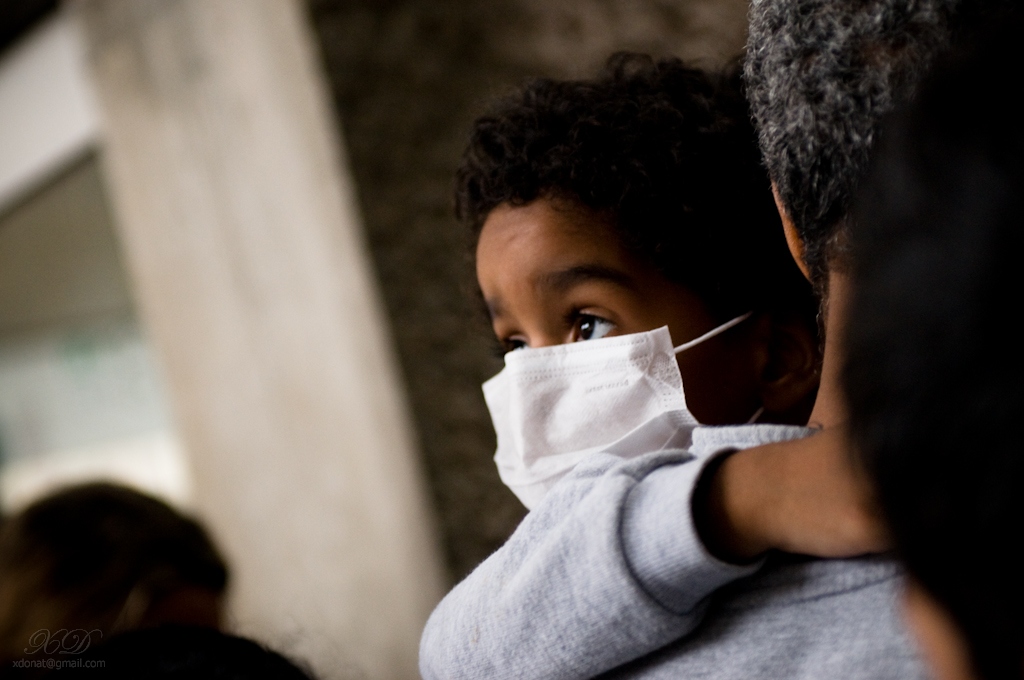Image credits: Flickr / Xavier Donat

COVID-19 l State action must be human rights compliant and protect human rights defenders
The COVID-19 outbreak is both a global health and human rights crisis. In their efforts to effectively combat the pandemic, States must ensure compliance with international human rights law and standards. UN human rights experts have given authoritative guidance in this regard.
Click here to read more about ISHR’s coverage of COVID-19.
In face of the current health crisis, a growing number of States have issued state of emergency declarations, and adopted confinement and other measures that may restrict human rights and fundamental freedoms. Global civil society has documented an alarming number of acts of persecution against human rights defenders, including harassment, surveillance, and threats, most often carried out in the guise of implementing emergency measures. Meanwhile, vulnerable populations, including women, people on the move, and minorities, are disproportionately impacted by the pandemic and the adverse human rights impacts of government measures, while being isolated and excluded from decision-making around effective responses to COVID-19.
From moratoriums on housing evictions and increased access to emergency shelter, to measures ‘to alleviate constraints faced by migrants workers and their families’, some States are taking steps in the right direction. Yet, many patterns of violations raise grave concerns: in China, the State has weaponised confinement measures to silence and isolate its dissenting voices; the Hungarian government has granted itself near-unlimited power in the name of COVID response; journalists reporting on the pandemic are detained and charged in Venezuela; in Bahrain, a royal amnesty releasing prisoners on humanitarian grounds has flagrantly excluded jailed human rights defenders.
However, civil society groups and human rights defenders are fighting back. They are demonstrating resilience and solidarity, determined to ensure emergency laws are not misused, health and policy responses are human rights compliant, and at-risk groups are not discriminated against. Their efforts must be supported, and their work, protected.
Over the past weeks, the UN and its Special Procedures experts have issued regular public calls providing guidance on specific areas of human rights, reiterating international human rights standards, and reminding States of their obligations to comply with them while combating COVID-19.
ISHR has compiled initial recommendations and guidance here (click here for IJRC’s full compilation of Covid-19 guidance from supranational human rights bodies) to inform and support local civil societies and human rights defenders at an early stafe as they track and monitor their government’s action to combat the pandemic, in the following areas:
- human rights defenders and civil society space
- equality and non-discrimination
- economic and social rights
- vulnerable groups
- places of detention
The work of human rights defenders is vital, and must be protected. In line with recommendations by UN experts, ISHR calls on States to:
- Ensure that any emergency responses are proportionate, necessary, non-discriminatory, with legitimate public health goals, and that restrictions to rights and freedoms are narrowly tailored;
- Comply with the principles of participation, accountability, non-discrimination, and empowerment, that constitute a human rights-based approach, to combat the pandemic;
- Refrain from using emergency declarations, and other measures to combat COVID-19, as a basis to target particular groups, minorities or human rights defenders, and to silence their work.
Want to take action? Click here and tweet about it!
In combating #COVID19, the voice of human rights defenders must be heard, recognized and protected – not silenced.
Governments should not abuse emergency measures. Instead, they must protect human rights while fighting the pandemic!
How? Read more here: https://t.co/zkM9i8FS7k
— Raphaël Viana • 海彦 (@vdraphael) April 7, 2020
